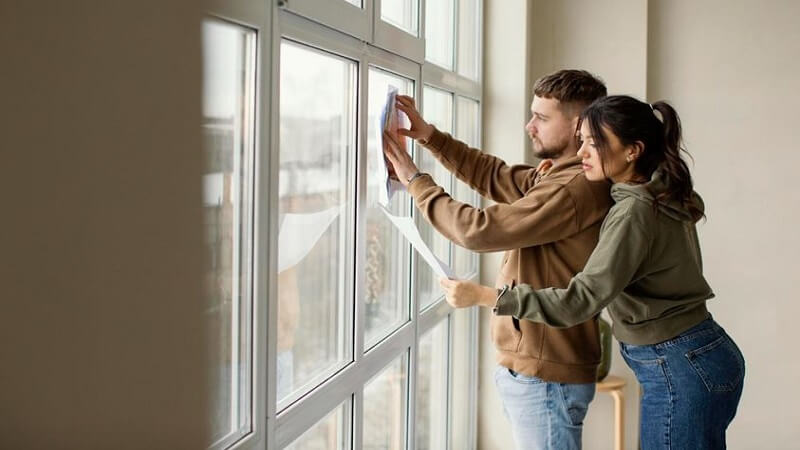When it comes to choosing windows for your home, the type of glass you select is just as important as the frame or style. Window glass isn’t one-size-fits-all, and different types offer varying benefits depending on your needs, such as energy efficiency, sound insulation, and UV protection.
Whether you’re replacing old windows or installing new ones, understanding the different window glass options available will help you make the right decision for your home and ensure quality craftsmanship at every stage of the process.
1. Single-Pane Glass: The Basics
Single-pane glass is the most basic type of window glass, consisting of just one layer of glass. While it was once the standard for homes, single-pane windows are now considered outdated due to their lack of insulation and energy efficiency.
Pros: Single-pane windows are generally cheaper upfront, making them a budget-friendly option for smaller projects or outbuildings like sheds or garages.
Cons: These windows provide little insulation, meaning they’re not ideal for homes in climates with extreme temperatures. Single-pane windows can let heat escape in the winter and let heat in during the summer, making your HVAC system work harder and increasing energy bills. They also offer poor sound insulation, which can be a problem if you live in a noisy area.
For most homeowners, upgrading to more energy-efficient options is a better long-term investment.
2. Double-Pane Glass: The Popular Choice
Double-pane windows are one of the most common choices for modern homes. As the name suggests, double-pane windows consist of two layers of glass with an insulating gas, like argon or krypton, between them. This layer of gas acts as a thermal barrier, helping to insulate your home.
Pros: Double-pane windows significantly improve energy efficiency by reducing heat transfer. They help keep your home warmer in the winter and cooler in the summer, leading to lower energy bills. They also provide better sound insulation compared to single-pane windows.
Cons: Double-pane windows are more expensive than single-pane windows, but the energy savings over time often make up for the higher initial cost.
Double-pane windows are a great all-around choice for most homes, especially if energy efficiency is a priority.
3. Triple-Pane Glass: For Extreme Conditions
Triple-pane windows take insulation to the next level by adding a third layer of glass. Similar to double-pane windows, these windows contain insulating gas between the panes but with the added benefit of an extra layer for even better insulation.
Pros: Triple-pane windows offer superior energy efficiency, making them ideal for homes in extreme climates—either very hot or very cold. They also provide excellent soundproofing, making them a popular choice for homeowners in busy urban areas or near highways.
Cons: Triple-pane windows are the most expensive option, and for homes in mild or moderate climates, the added cost might not be justified by the energy savings. They are also heavier, which can make installation more complicated and may require stronger window frames.
If you live in an area with harsh winters or lots of noise pollution, triple-pane windows are worth considering.
4. Low-E Glass: Energy Efficiency and UV Protection
Low-emissivity (Low-E) glass is designed to reduce heat transfer while still allowing light to pass through. It has a special coating that reflects heat back into your home during the winter and blocks unwanted solar heat during the summer.
Pros: Low-E glass windows can significantly improve your home’s energy efficiency by maintaining a comfortable indoor temperature year-round. They also block harmful UV rays, which can fade furniture, flooring, and curtains over time. This is a great option for rooms that receive a lot of direct sunlight.
Cons: Low-E glass can slightly reduce the amount of visible light that enters your home, although this is usually minimal. It can also be more expensive than standard glass options.
Low-E glass is a smart investment for anyone looking to improve their home’s energy efficiency, especially in areas with a lot of sun exposure.
Ultimately, by selecting the best window glass for your situation, you’ll not only enhance the comfort and safety of your home but also save on energy bills and increase your property’s overall value.
